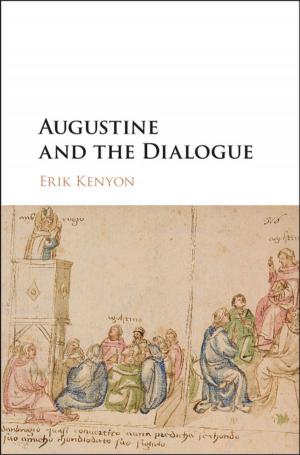Gadamer and the Legacy of German Idealism
Nonfiction, Religion & Spirituality, Philosophy, Phenomenology, History, Criticism, & Surveys| Author: | Kristin Gjesdal | ISBN: | 9780511847813 |
| Publisher: | Cambridge University Press | Publication: | May 28, 2009 |
| Imprint: | Cambridge University Press | Language: | English |
| Author: | Kristin Gjesdal |
| ISBN: | 9780511847813 |
| Publisher: | Cambridge University Press |
| Publication: | May 28, 2009 |
| Imprint: | Cambridge University Press |
| Language: | English |
The philosophy of Hans-Georg Gadamer interests a wide audience that spans the traditional distinction between European (continental) and Anglo-American (analytic) philosophy. Yet one of the most important and complex aspects of his work - his engagement with German Idealism - has received comparatively little attention. In this book, Kristin Gjesdal uses a close analysis and critical investigation of Gadamer's Truth and Method (1960) to show that his engagement with Kant, Hegel, and Schleiermacher is integral to his conception of hermeneutics. She argues that a failure to engage with this aspect of Gadamer's philosophy leads to a misunderstanding of the most pressing problem of post-Heideggerian hermeneutics: the tension between the commitment to the self-criticism of reason, on the one hand, and the turn towards the meaning-constituting authority of tradition, on the other. Her study provides an illuminating assessment of both the merits and the limitations of Gadamer's thought.
The philosophy of Hans-Georg Gadamer interests a wide audience that spans the traditional distinction between European (continental) and Anglo-American (analytic) philosophy. Yet one of the most important and complex aspects of his work - his engagement with German Idealism - has received comparatively little attention. In this book, Kristin Gjesdal uses a close analysis and critical investigation of Gadamer's Truth and Method (1960) to show that his engagement with Kant, Hegel, and Schleiermacher is integral to his conception of hermeneutics. She argues that a failure to engage with this aspect of Gadamer's philosophy leads to a misunderstanding of the most pressing problem of post-Heideggerian hermeneutics: the tension between the commitment to the self-criticism of reason, on the one hand, and the turn towards the meaning-constituting authority of tradition, on the other. Her study provides an illuminating assessment of both the merits and the limitations of Gadamer's thought.















